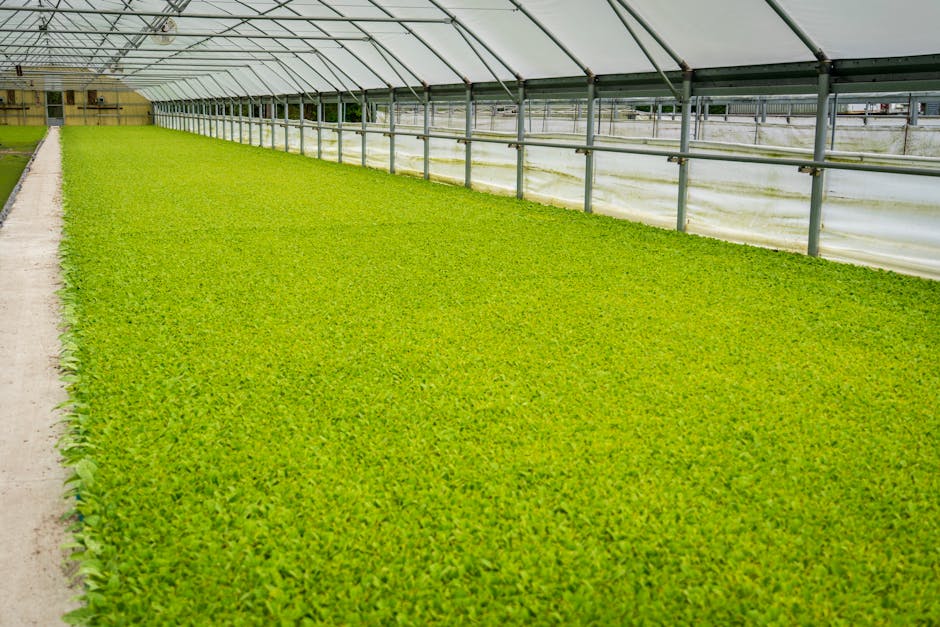Modern agricultural practices, driven by the need to meet escalating global food demands, have embraced intensification. This strategy, focused on maximizing output per unit of land, has yielded significant short-term gains. However, the long-term consequences of this approach are multifaceted and potentially detrimental to both the environment and human health. A nuanced understanding of these effects is crucial for sustainable agricultural development.
A pivotal aspect of intensive farming is the extensive use of synthetic fertilizers and pesticides. These inputs, while boosting crop yields in the immediate term, have profound long-term impacts on soil health. Prolonged application of nitrogen-rich fertilizers can lead to nutrient imbalances in the soil, potentially depleting vital micronutrients and impacting biodiversity. This, in turn, can negatively affect the soil’s structure, water retention capacity, and ultimately, its long-term fertility. Overuse of pesticides, while effective at controlling pests, frequently leads to the development of resistance, necessitating stronger and more potent chemicals in the future. Furthermore, these chemicals can permeate the food chain, entering the water supply and impacting human and animal health.
Another significant concern arising from intensive farming practices is the erosion of biodiversity. Mono-cropping, a common feature of intensive agriculture, significantly reduces habitat diversity. This simplification of ecosystems diminishes the number and variety of plant and animal species, leaving the system more vulnerable to pests and diseases. The loss of pollinators, crucial for many crops, is a growing issue directly related to intensive farming practices. The reduction of natural habitats and the widespread use of pesticides contribute to the decline of these essential insects.
Intensive livestock farming, a critical component of the food system, also presents serious long-term concerns. Confined animal feeding operations (CAFOs) often result in significant environmental pollution. Concentrated animal waste generates substantial amounts of greenhouse gases, contributing to climate change. Moreover, the high density of animals in these facilities raises concerns about zoonotic diseases, the potential transmission of animal diseases to humans. Ethical considerations surrounding animal welfare in intensive farming practices also deserve scrutiny, as such practices often result in confinement, restricted movement, and potentially stressful conditions for the animals.
The long-term effect of intensive farming on water resources is equally noteworthy. High inputs of fertilizers and pesticides can contaminate water bodies, leading to eutrophication and harming aquatic life. Runoff from agricultural fields can carry sediment and pollutants into rivers and lakes, degrading water quality and threatening aquatic ecosystems. This contamination can ultimately affect human health as well, impacting drinking water sources and potentially leading to health problems.
Economic sustainability is another element often overlooked in assessing the long-term impacts of intensive farming. While intensive agriculture initially promises high yields and profits, the long-term costs associated with environmental damage, health issues, and soil degradation can far outweigh the short-term gains. The need to invest in remediation measures, the potential for future food shortages due to environmental degradation, and the escalating costs of treating health issues stemming from the use of pesticides and fertilizers will eventually negatively impact the long-term viability of such practices.
Sustainable alternatives to intensive agriculture are emerging. Agroforestry, conservation tillage, and integrated pest management are examples of sustainable farming approaches that seek to minimize negative environmental impacts. These practices emphasize biodiversity, soil health, and water conservation, thereby ensuring the long-term productivity and resilience of agricultural systems. Diversification of crops and incorporating legumes and cover crops into rotations helps enhance soil fertility and reduce reliance on synthetic fertilizers.
Furthermore, a shift towards precision agriculture, leveraging technology to optimize resource use and minimize waste, is also a key element of sustainable intensification. Employing technologies like GPS-guided equipment and sensor data analysis, farmers can optimize fertilizer and pesticide applications, reducing environmental impact.
Addressing the long-term effects of intensive farming requires a multi-faceted approach. Government policies supporting sustainable farming practices, research into innovative solutions, and consumer awareness campaigns are all essential components. Consumers play a significant role in demanding sustainable products, influencing the market and ultimately promoting practices that prioritize environmental and social responsibility.
Ultimately, the choice between intensive farming and sustainable alternatives will shape the future of agriculture. A balanced perspective, acknowledging both the crucial role of agriculture in feeding a growing global population and the imperative of safeguarding the environment and human well-being, is essential for a sustainable future. Sustaining agricultural productivity without compromising the environment and societal well-being is a considerable challenge. However, embracing sustainable alternatives, innovative technologies, and a collective commitment to long-term well-being will contribute to a more resilient and environmentally conscious agricultural system.






